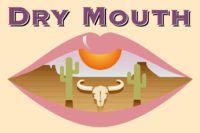Grinding
Do You Clench or Grind your teeth?
Do you wake up with jaw pain or muscles soreness?
Click Here to learn more about how malocclusion relates to dental problems.
TMJ
 The Temporal Mandibular Joints (TMJ) are located just in front of the ear, where the lower jaw articulates with the skull. These joints allow the hinged movement of the jaw. Problems can occur to the TMJ due to injury, arthritis, or habits such as grinding the teeth while sleeping.
The Temporal Mandibular Joints (TMJ) are located just in front of the ear, where the lower jaw articulates with the skull. These joints allow the hinged movement of the jaw. Problems can occur to the TMJ due to injury, arthritis, or habits such as grinding the teeth while sleeping.
Read More about TMJ…
TMJ Disorders may produce the following symptoms:
- Ear Ringing
- Headaches
- Clicking or Popping Noises (while eating)
- Pain (with opening or closing the mouth)
- Limited movement of the jaw Lock Jaw
It has been estimated that 50 million people in North America suffer from one or more of these often debilitating symptoms. Symptoms typically generated by the TMJ include an incorrect bite, spasms in facial/neck muscles, or a combination of these problems. Our office believes it is necessary to find and treat the causes of the symptoms rather than only give temporary relief with medications.
Our focus is to address the TMJ factors relating to the pain by restoring proper function to the patient’s bite and jaw relations. This course of treatment varies widely between specific cases and degrees of damage to the joint, and can include the use of an oral appliance, advanced orthodontics, and restorative dentistry to establish a better occlusion (bite) for the patient. In some extreme cases, surgery to the joint may even be recommended.
Night Guards for Bruxing
 Bruxing is when a person clenches and grinds their teeth. It has been estimated that over 30% of all adults grind their teeth at night while they sleep. This subconscious action is a way of dealing with daily stress and anxiety, and it can have severe, detrimental effects on your teeth, jaw, and muscles of the head and neck.
Bruxing is when a person clenches and grinds their teeth. It has been estimated that over 30% of all adults grind their teeth at night while they sleep. This subconscious action is a way of dealing with daily stress and anxiety, and it can have severe, detrimental effects on your teeth, jaw, and muscles of the head and neck.
Read More about Bruxing and Night Guards…
As a patient grinds and wears down their enamel, their teeth become flat, allowing them to grind more easily. A person who grinds at night may awake with discomfort in the muscles of the jaw and face. Left unguarded, bruxing can cause a variety of problems including cracked or broken teeth, abfractions, gum recession, sensitivity to temperatures, headaches, and TMJ pain.
While Night Guards do not stop night-time grinding, they are designed to act as a buffer between the upper and lower teeth. Custom-fit Guards made using patient impressions fit better and last longer than those bought over-the-counter. At delivery, the Dentist will make sure that the guard fits properly and the occlusion (bite) is balanced. A muscle relaxer may be prescribed for use at night during the first week of wear.
Patients suffering from migraines associated with jaw pain and clenching can find out more about a special type of appliance that can help.
Dry Mouth
 There is a connection between dry mouth, more formally called xerostomia, and tooth decay.
There is a connection between dry mouth, more formally called xerostomia, and tooth decay.
What causes dry mouth?
- Prescription and over-the-counter medications
- Radiation treatment
- Age
- Hormonal alterations
Find out more about dry mouth from the American Dental Association.
Sleep Apnea
Sleep apnea is a serious condition. If you snore or think you make stop breathing while you sleep, click here to find out more from the Mayo Clinic.
If you have already been diagnosed with obstructive sleep apnea and are currently using a CPAP machine to treat your condition, you might be a candidate for an oral appliance alternative. Call the office to find out more. Here is one patient’s success story:
